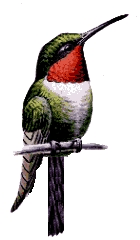The Irish Karen says "I would hope..." The American Karen says "..."
The American Karen uses the contraction of the conditional of the verb "hope".
Why do they use the conditional "would" or "'d"?
The traditional examples of the conditional with "would" fall into the real vs imaginary category:
Example: I'd (I would) help you, but I'm too busy.
Our case is similar but nuanced. We must imagine what the speaker is thinking.
Perhaps the Karens are thinking: I'd (I would) hope to get a Master's degree,
or to be a more broad-minded person,
but I don't know exactly what I am capable of doing!
Finally, what exactly would they hope? Watch the Amercian Karen again:
The American Karen would hope to get her degree
and to

at a before she dies.

What about the Irish Karen? This is more difficult to put into pictures!
Type the two verbs:
Karen says "I would hope
that I would a greater understanding of things than I do at the moment and I'd hope
to possibly a more broad-minded person.
Have and Be with 2 uses of the Comparative:
Karen's first use of the Comparative:Which statement shows "greater understanding"?
Click on the picture showing greater, or better understanding of geography, for example.


Karen's second use of the Comparative:
First, the basic adjectives: narrow and broad
This is a broad-tailed hummingbird:

This is a narrow-tailed hummingbird:

Can you see the difference between the 2 birds? Here's another example:

The road is broad and becomes narrow. But Karen is not talking about birds nor roads. She is talking about her mind. The mind is the center of consciousness that generates thoughts, feelings, ideas, etc., and stores knowledge and memories. It is often compared to the brain:

Finally, broad-minded is a compound adjective in Karen's case. She is describing herself. She wants to be a more broad-minded person.
I think this exercise shows the limits of the use of pictures
to convey meaning.
But would this type of definition be better? For example, we could say
or write: "A more broad-minded person is a person who is more receptive, more open to new ideas, than the person was previously". Any other ideas for teaching vocabulary without bilingual dictionaries? With HP?
